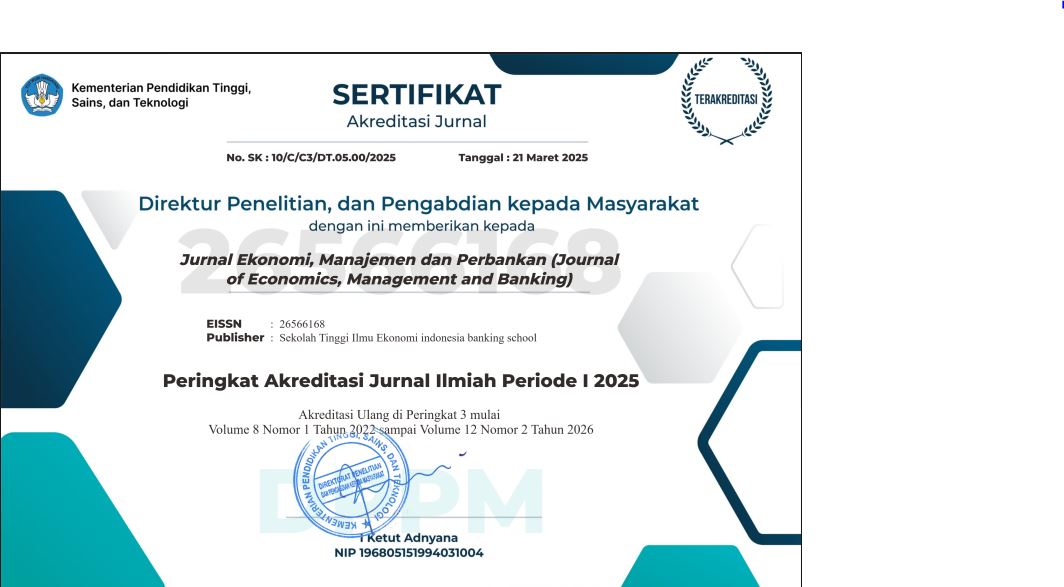Analisis Laporan Keuangan Bank terhadap Return Saham pada Bank Umum Swasta Nasional Devisa Periode 2011—2015
DOI:
https://doi.org/10.35384/jemp.v3i1.114Keywords:
Loan to Deposit Ratio (LDR), Capital Adequacy Ratio (CAR), Return On Asset (ROA), Operating Income Operating Expenses (OIOE/BOPO)Abstract
The purpose of this study was to determine and analyze the effect of bank financial report using variable Loan to Deposit Ratio (LDR), Capital Adequacy Ratio (CAR), Return On Asset (ROA), and Operating Income Operating Expenses (OIOE/BOPO) toward a stock return in a conventional bank. The sample selection using purposive sampling method and a sample of this research are as many as 18 national private commercial bank foreign exchange in Indonesia. Data obtained from secondary data in annual reports of a bank in Indonesia Stock Exchange sites. The analysis technique used in this research is multiple regression analysis. The hypothesis in this study was based on previous studies and various other supporting theories. The results of this study indicate that the loan to deposit ratio (LDR) positively effect on stock return, capital adequacy ratio (CAR) no significant effect on stock return, return on asset (ROA) positively effect on stock return. While Operating Income Operating Expenses variable removed for affected Multikolinierity.
Downloads
Published
Issue
Section
License
Authors who publish with this journal agree to the following terms:
- Authors retain copyright and grant the journal right of first publication with the work simultaneously licensed under a Creative Commons Attribution License that allows others to share the work to acknowledge the work's authorship and initial publication in this journal.
- Authors can enter into separate, additional contractual arrangements for the non-exclusive distribution of the journal's published version of the work (e.g., post it to an institutional repository or publish it in a book) with an acknowledgment of its initial publication in this journal.
- Authors are permitted and encouraged to post their work online (e.g., in institutional repositories or on their website) before and during submission. It can lead to productive exchanges and earlier and greater citation of published work.















